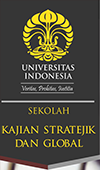Abstract
A safe work environment, mutual respect, freedom from discrimination, harassment, violence, gender inequality, discrimination of women is highly coveted in the Indonesian work environment. In State-Owned Enterprises there are still issues of harassment, gender inequality, violence, and women's opportunities to become leaders in the workplace. In 2021, the number of women leaders in workplace is still below 10%. The Ministry of State-Owned Enterprises is aiming to increase the representation of women in the Board of Commissions or Executives, and one level below the Board of Executives by 25% in 2023.
The purpose of this research is to analyse women's issues in the State-Owned Enterprises environment related gender inequality, harassment, and violence; identify variables which affects to work engagement and harassment. The research used quantitative methodology with a questionnaire survey and descriptive analysis completed in order to determine the differences between demographic groups, gender, age groups, positions in the company and marital status. The research is conducted in Indonesian State-Owned Enterprises, this specific location of research is the novelty of this research. The result of this research is the implementation of the policies of mutual respect in workplace that conceive productive work environment, respect women, and protect human dignity, free from harassment, create gender equality and uphold human rights.
References
Alessa,N., Shalhoob, H., Almugarry,H. (2022). Saudi Women's Economic Empowerment in Light of Saudi Vision 2030 Perception, Challenges and Opportunities. Journal of Educational and Social Research. Vol 12 No 1.
Bowling, N. A., & Beehr, T. A. (2006). Workplace harassment from the victim's perspective: A theoretical model and meta-analysis. Journal of Applied Psychology, 91(5), 998–1012.
Cairney, P., St. Denny, E., Kippin, S. and Mitchell, H. (2022). Lessons from policy theories for the pursuit of equity in health, education and gender policy. Policy and Politics, 50(3): 362–383, DOI: 10.1332/030557321X16487239616498.
Joo, B. K., & Shim, J. H. (2010). Psychological empowerment and organizational commitment: the moderating effect of organizational learning culture. Human resource development international, 13(4), 425-441.
Meng, Q., & Sun, F. (2019). The impact of psychological empowerment on work engagement among university faculty members in China. Psychology research and behavior management, 12, 983. 2019
Moura, D., Orgambídez-Ramos, A., & de Jesus, S. N. (2015). Psychological empowerment and work engagement as predictors of work satisfaction: A sample of hotel employees. Journal of Spatial and Organizational Dynamics, 3(2), 125-134.
Peterson, H., Jordansson, B. (2022). Gender mainstreaming in Swedish academia: translating policy into practice. Journal of Gender Studies, 31:1, 87-100.
Pri, R., Zamralita. (2017). Gambaran Work Engagement Pada Karyawan di PT. EG. (Manufacturing Industry). Jurnal Muara Ilmu Sosial, Humaniora, dan Seni. Vol. 1, No. 2, Oktober 2017: hlm 295-303
Recommended Citation
Susilowati, Endang and Sadirsan, Erwin Susanto
(2023)
"RESPECTFUL WORKPLACE POLICY TO CONCEIVE A SECURITY CONSCIOUSNESS AND GENDER EQUALITY AS AN IMPLEMENTATION OF AKHLAK CORE VALUES IN STATE-OWNED ENTERPRISES ENVIRONMENT,"
Journal of Terrorism Studies: Vol. 5:
No.
2, Article 3.
DOI: 10.7454/jts.v5i2.1065
Available at:
https://scholarhub.ui.ac.id/jts/vol5/iss2/3
Included in
Asian Studies Commons, Gender and Sexuality Commons, Leadership Studies Commons, Organization Development Commons, Public Affairs, Public Policy and Public Administration Commons, Social Justice Commons, Women's Studies Commons


